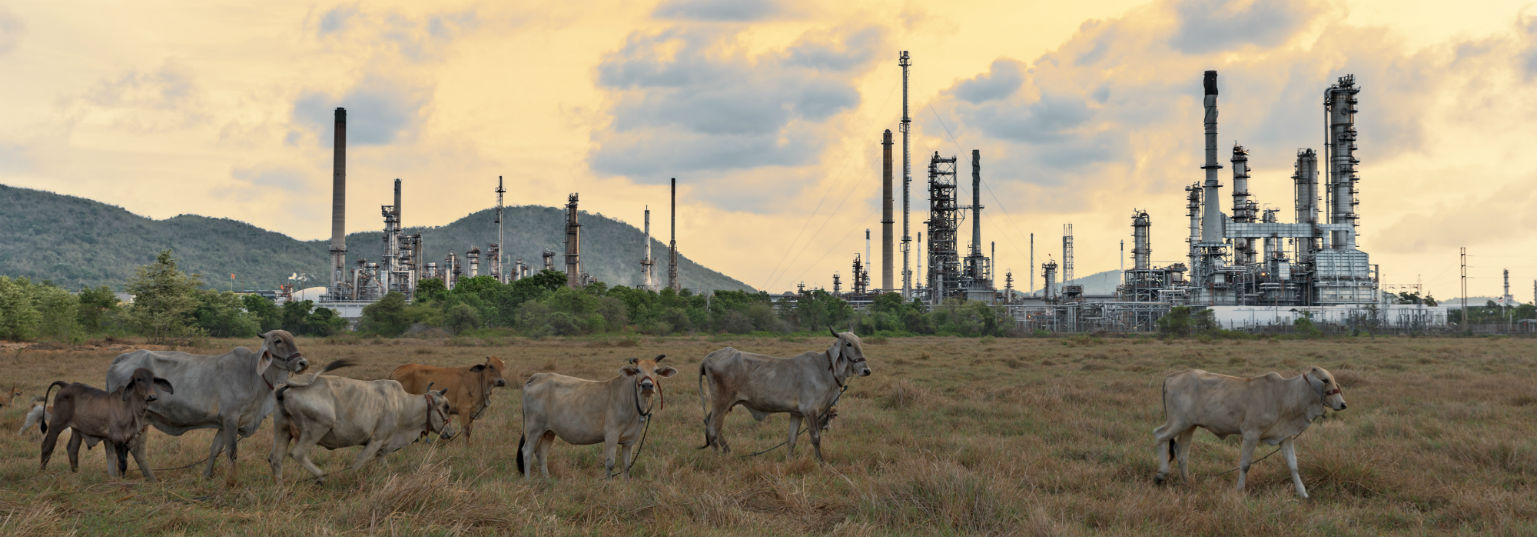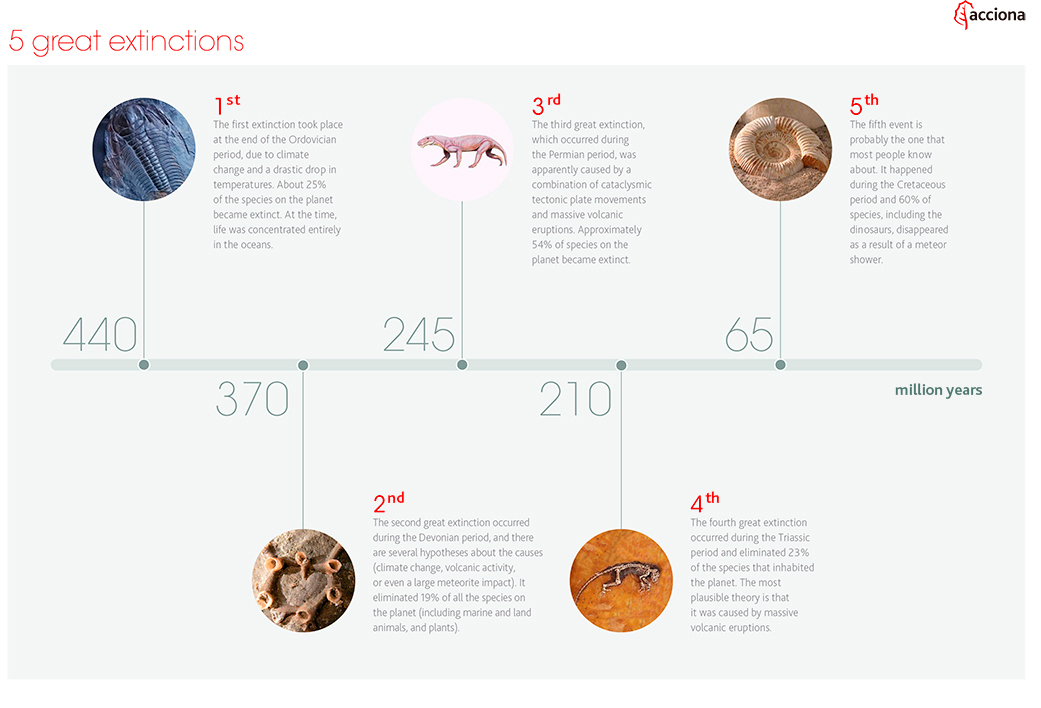Are we facing the Sixth Mass Extinction?
The excessive resources consumption and the use of fossil fuels accelerate the deterioration of the planet
Earth has suffered five mass extinctions. The last and most devastating was 65 million years ago, when 60% of the species that populated the planet perished alongside the dinosaurs. The one thing these extinctions all have in common is that they were caused by natural phenomena, whether it was a meteor shower, stellar explosion or tectonic plate movements. Now the planet is facing another mass extinction, the sixth. The difference from the previous ones, however, is that the cause is not natural, but one produced by human activity. The impact of humankind on the planet is so big that some scientists have concluded that the period in which we live should be called the Anthropocene age.
Overexploitation of resources
In the opinion of scientists at the National Autonomous University of Mexico, “we have undoubtedly entered the Sixth Mass Extinction”. What are the causes of this mass extinction? The origins include human overpopulation, combined with a great need for resources and our growing impact on the environment. The progressive disappearance of species is mainly down to two factors:
- Overexploitation of natural resources (deforestation, hunting and fishing, etc.)
- An economy based on fossil fuels (that pollute the atmosphere) and are producing global warming with dire consequences for ecosystems.
A very clear example of the first cause, the overexploitation of resources, is that of the pufferfish. This fish, capable of inflating itself to frighten off predators and poisonous to avoid extinction, has survived thousands of years and yet now it seems powerless against the fashion for sushi and sashimi. Intensive fishing of the pufferfish to supply the Japanese market has reduced its population by 99.9% over the past 40 years, according to the Red List of Threatened Species of the International Union for Conservation of Nature (IUCN). The fashion for raw fish has also led the Atlantic Bluefin Tuna to the verge of collapse, since the fishing industry catches them before they are old enough to reproduce.
An example of the effect of global warming on species can be seen with coral. The warming of the water and acidification of the oceans (due to the increase of carbon dioxide in the atmosphere) are the principal reasons coral is dying rapidly. In 1999, we started to notice that the increase in sea temperature was directly related to the massive disappearance of coral reefs in the Mediterranean. This effect was soon also noticed in other places, such as Australia, where the Great Barrier Reef began to bleach. Coral reefs are ecosystems that supply food and habitat to thousands of fish and shellfish, while providing shelter for the coasts off which they grow. This is why the disappearance of the reefs means a loss of natural heritage and threat to many species and ultimately to people themselves.
What will be the effect of this Sixth Extinction?
According to the journal Science Advances, most recent extinctions of species have occurred over the past century. But, following previous mass extinctions, It took millions of years for nature to recover and diversify again. If we allow the current rate of extinction to continue, perhaps it is we who will fail to recover. Humanity would be deprived of many of biodiversity’s benefits, much of which make life on Earth possible. It is not clear how many or how fast species will become extinct, but it is in our hands to limit the damage to the planet.
Sources: El País, Unión Internacional para la Conservación de la Naturaleza, El País II, Science Advances and the Instituto de Ecología de la Universidad Nacional Autónoma de México.








